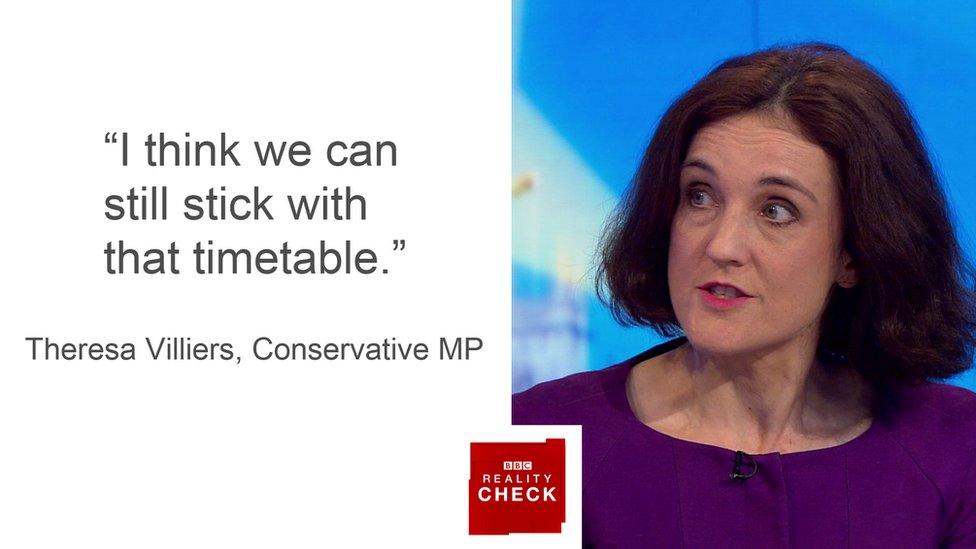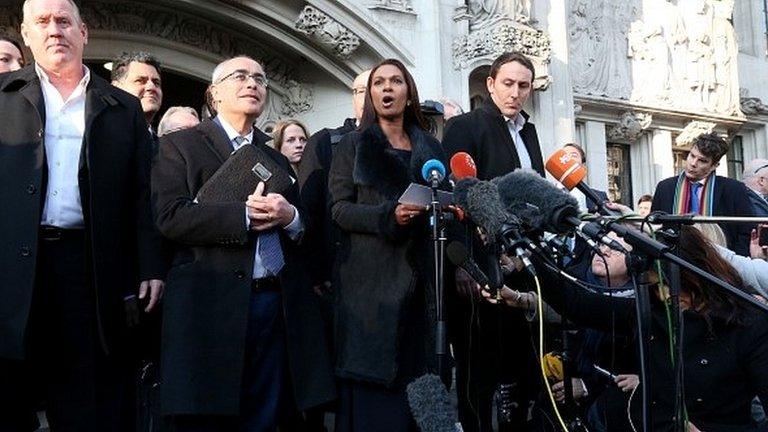Reality Check: Will Supreme Court ruling delay Brexit?
- Published

The Supreme Court has ruled that the government must consult Parliament before triggering Article 50 - the clause in the EU Treaty that will formally start the Brexit process.
Furthermore, it has ruled that nothing less than an act of Parliament will do.
That means that MPs and members of the House of Lords will get to vote on whether it happens. They will also get the chance to try to amend the bill as it passes through the various legislative stages.
In principle, this could delay the process. However, in practice it is thought unlikely that Theresa May's end of March deadline will be missed.
How long will it take?
The government wanted to trigger Article 50 using the Royal Prerogative, which is a set of powers that used to be held by the monarch but now reside with government ministers.
That would have meant it could have done so at a time of its choosing and without consulting Parliament at all.
The decision that it must specifically pass a bill is significant. Some other procedures would have meant fewer stages in Parliament and no chance to make amendments.
A full bill means that both houses of Parliament must agree and amendments are possible.
To become an act of Parliament a bill must pass several stages in both the Commons and the Lords. That often takes months of debate, but it doesn't necessarily have to. Emergency legislation can be passed within a single day if everyone agrees it is urgent.
The bill to trigger Article 50 won't be that quick, but it needn't take too long. For one thing, it is likely to be a very short bill with only one or two clauses.
How much opposition?
Labour leader Jeremy Corbyn has said that his MPs should not seek to block Article 50. Ken Clarke is expected to be the only Conservative who will vote against it. So the numbers look to be in place to ensure a smooth passage for the bill in the House of Commons.
But more MPs may back attempts to amend the bill, for example, by adding conditions about the sort of Brexit the government should negotiate.
In principle, the House of Lords could be different. The government does not have a majority and many peers remain strongly opposed to Brexit.
However, there is recognition that Parliament voted overwhelmingly to hold a referendum and that the referendum delivered a clear, albeit close, result. Members of the House of Lords, who are not elected, realise that any attempt to frustrate Brexit could be regarded as undemocratic.



- Published24 January 2017

- Published3 November 2016
